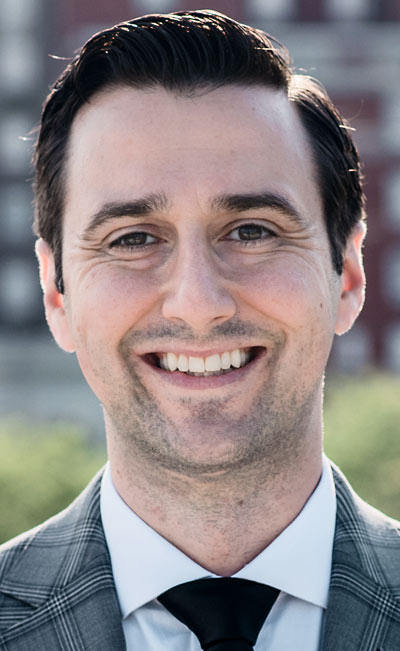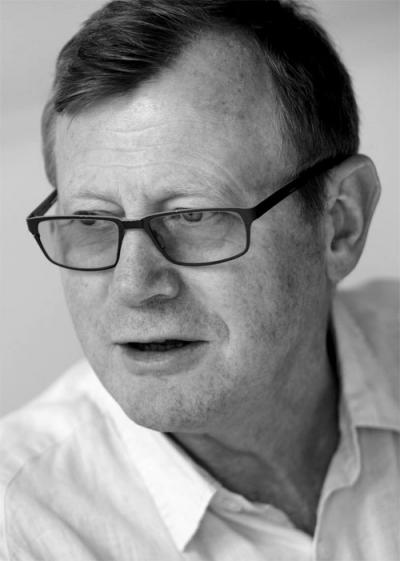

 Almost every institution which purports to provide space for public accountability includes some sort of formalized process by which the public can have their say. And in almost every instance, they struggle with a tension between the desire to provide a commenting process which is meaningful and substantive (or, at least, which appears to be so), and a desire to adopt whatever course of action the institution thinks is best. more
Almost every institution which purports to provide space for public accountability includes some sort of formalized process by which the public can have their say. And in almost every instance, they struggle with a tension between the desire to provide a commenting process which is meaningful and substantive (or, at least, which appears to be so), and a desire to adopt whatever course of action the institution thinks is best. more
 ??Dynamics at the Internet's core erode stakeholder legitimacy and aid Sino-Russian efforts for multilateral control. ???At the beginning of what became a prolonged process for privatization, the U.S. Government established a framework of fundamental guiding principles for governance of the Internet's root. These principles were designed to work to preserve a free and open nature for a global network that was to be elastic, extensible, and – at more than two decades – enduring. more
??Dynamics at the Internet's core erode stakeholder legitimacy and aid Sino-Russian efforts for multilateral control. ???At the beginning of what became a prolonged process for privatization, the U.S. Government established a framework of fundamental guiding principles for governance of the Internet's root. These principles were designed to work to preserve a free and open nature for a global network that was to be elastic, extensible, and – at more than two decades – enduring. more
 At IETF 105, held in Montreal at the end of July, the Technical Plenary part of the meeting had two speakers on the topic of privacy in today's Internet, Associate Professor Arvind Narayanan of Princeton University and Professor Stephen Bellovin of Colombia University. They were both quite disturbing talks in their distinct ways, and I'd like to share my impressions of these two presentations and then consider what privacy means for me in today's Internet. more
At IETF 105, held in Montreal at the end of July, the Technical Plenary part of the meeting had two speakers on the topic of privacy in today's Internet, Associate Professor Arvind Narayanan of Princeton University and Professor Stephen Bellovin of Colombia University. They were both quite disturbing talks in their distinct ways, and I'd like to share my impressions of these two presentations and then consider what privacy means for me in today's Internet. more
 It wasn't that long ago that, during a visit home, my brother asked me, "Why are you so stuck on this Internet thing?" His direct question caused me to realize that I had never actually stopped and considered why I was investing so much time – and in such a highly visible manner – into Internet governance when I wasn't being compensated for doing so and, in fact, was – not putting too fine of a point on it – flat broke. more
It wasn't that long ago that, during a visit home, my brother asked me, "Why are you so stuck on this Internet thing?" His direct question caused me to realize that I had never actually stopped and considered why I was investing so much time – and in such a highly visible manner – into Internet governance when I wasn't being compensated for doing so and, in fact, was – not putting too fine of a point on it – flat broke. more
 Over the past 30 months, since Trump was installed in the White House, he has systematically abrogated US treaty responsibilities and diminished the nation's engagement in international collaborative activities. More recently, his gambits have expanded to market entry, chip component, and software restrictions on Chinese telecommunication equipment vendors, especially Huawei. more
Over the past 30 months, since Trump was installed in the White House, he has systematically abrogated US treaty responsibilities and diminished the nation's engagement in international collaborative activities. More recently, his gambits have expanded to market entry, chip component, and software restrictions on Chinese telecommunication equipment vendors, especially Huawei. more
 ICANN has published a short paper in advance of its 65th meeting in Marrakech which starts on 23 June 2019. Entitled, "ICANN Org's Readiness to Support Future Rounds of New gTLDs," it describes ICANN's working assumptions for "policy implementation and operational readiness for a subsequent round of new gTLDs". The document is necessary for ICANN to move forward with essential preparations for the next round. more
ICANN has published a short paper in advance of its 65th meeting in Marrakech which starts on 23 June 2019. Entitled, "ICANN Org's Readiness to Support Future Rounds of New gTLDs," it describes ICANN's working assumptions for "policy implementation and operational readiness for a subsequent round of new gTLDs". The document is necessary for ICANN to move forward with essential preparations for the next round. more
 Recently, the Presidents of four Latin American countries slammed ICANN over its .amazon domain name decision. This added to a long list of geo-politically infused challenges which ICANN needed to render final decisions on after all delay tactics or deferments had already been fully exhausted. It is clear that ICANN is facing unprecedented challenges as it tackles issues that go beyond its current narrow mandate. more
Recently, the Presidents of four Latin American countries slammed ICANN over its .amazon domain name decision. This added to a long list of geo-politically infused challenges which ICANN needed to render final decisions on after all delay tactics or deferments had already been fully exhausted. It is clear that ICANN is facing unprecedented challenges as it tackles issues that go beyond its current narrow mandate. more
 The European Data Protection Board certainly has been keeping its records straight. Its 27 May statement starts with the following: "WP29 has been offering guidance to ICANN on how to bring WHOIS in compliance with European data protection law since 2003." All internet users have dealings with the Internet Corporation for Assigned Names and Numbers, yet the vast majority have never heard of ICANN. more
The European Data Protection Board certainly has been keeping its records straight. Its 27 May statement starts with the following: "WP29 has been offering guidance to ICANN on how to bring WHOIS in compliance with European data protection law since 2003." All internet users have dealings with the Internet Corporation for Assigned Names and Numbers, yet the vast majority have never heard of ICANN. more
 There is considerable rhetoric propagated today about 5G security. Some of the more blatant assertions border on xenophobia with vague assertions that the 5G vendors from some countries cannot be trusted and wholesale government banning is required. Existing treaty obligations are being summarily abrogated in favour of bilateral trade bullying. These are practices that the late President George H.W. Bush sought to eliminate a quarter century ago through intergovernmental organization initiatives... more
There is considerable rhetoric propagated today about 5G security. Some of the more blatant assertions border on xenophobia with vague assertions that the 5G vendors from some countries cannot be trusted and wholesale government banning is required. Existing treaty obligations are being summarily abrogated in favour of bilateral trade bullying. These are practices that the late President George H.W. Bush sought to eliminate a quarter century ago through intergovernmental organization initiatives... more
 It is supremely ironic. A rogue national leader with the stroke of a pen, dictates that its companies will expose a foreign company's end users to cyberattacks. This is the net effect of denying security patches or operating system updates pursuant to Trump's order. In the US Great Rogue Leader's bizarro world, this is the very behavior that he claims makes his actions necessary. In fact, this Trump malware attack is worse because of the mass exposure to exploits. more
It is supremely ironic. A rogue national leader with the stroke of a pen, dictates that its companies will expose a foreign company's end users to cyberattacks. This is the net effect of denying security patches or operating system updates pursuant to Trump's order. In the US Great Rogue Leader's bizarro world, this is the very behavior that he claims makes his actions necessary. In fact, this Trump malware attack is worse because of the mass exposure to exploits. more
 GenX-ers may remember spending a summer afternoon at the movie theater and seeing the somewhat corny but beloved antics of Marty McFly and Doc as they used a souped-up Delorean to travel the space-time continuum. In Back to the Future Part II, Doc and Marty travel into the future, where the bullying, boorish Biff causes a time-travel paradox when he steals the Delorean and takes a joyride into the past to give his younger self a sports almanac containing the final scores of decades worth of sporting events. more
GenX-ers may remember spending a summer afternoon at the movie theater and seeing the somewhat corny but beloved antics of Marty McFly and Doc as they used a souped-up Delorean to travel the space-time continuum. In Back to the Future Part II, Doc and Marty travel into the future, where the bullying, boorish Biff causes a time-travel paradox when he steals the Delorean and takes a joyride into the past to give his younger self a sports almanac containing the final scores of decades worth of sporting events. more
 ICANN is about to do serious damage to its reputation by making a precipitous, ill-considered leap into the unknown should it follow through on removing price constraints on several legacy extensions, most notably .org. Doing so would expose a global community of non-profits to the risk of quickly-escalating exploitative pricing. The rationale for eliminating price caps relies on three points, all of which are incorrect. more
ICANN is about to do serious damage to its reputation by making a precipitous, ill-considered leap into the unknown should it follow through on removing price constraints on several legacy extensions, most notably .org. Doing so would expose a global community of non-profits to the risk of quickly-escalating exploitative pricing. The rationale for eliminating price caps relies on three points, all of which are incorrect. more
 The draft e-commerce policy paper of the Ministry of Commerce and Industry of India raises valid observations concerning some of the imbalances, such as, on the excessive advantages gained by the "first movers" in the private sector, which implies advantages gained by the first -mover States on the Internet, on some of the prevailing gaps in the space and also on concerns about the abusive practices by a few e-commerce platforms and vendors. Most of these concerns are best addressed globally... more
The draft e-commerce policy paper of the Ministry of Commerce and Industry of India raises valid observations concerning some of the imbalances, such as, on the excessive advantages gained by the "first movers" in the private sector, which implies advantages gained by the first -mover States on the Internet, on some of the prevailing gaps in the space and also on concerns about the abusive practices by a few e-commerce platforms and vendors. Most of these concerns are best addressed globally... more
 As society uses more digital technologies we are increasingly also faced with its problems. Most of us will have some horror stories to tell about using computers, smartphones, and the internet. But this hasn't stopped us from using the technology more and more. I believe that most people would say that their lives would be worse without technology -- in developed countries but equally in the developing world. more
As society uses more digital technologies we are increasingly also faced with its problems. Most of us will have some horror stories to tell about using computers, smartphones, and the internet. But this hasn't stopped us from using the technology more and more. I believe that most people would say that their lives would be worse without technology -- in developed countries but equally in the developing world. more
 Let's take some crayons and draw a picture of the current state of affairs regarding single-character domain names (SCDNs), and specifically O.COM. During the public comment period for the current O.COM RSEP, ICANN's own Intellectual Property and Business constituencies recommended implementation of rights protections mechanisms (RPMs) for intellectual property, including Sunrise and Priority Access periods. It is curious that such hard-won protections are being so easily set aside by Verisign and ICANN. more
Let's take some crayons and draw a picture of the current state of affairs regarding single-character domain names (SCDNs), and specifically O.COM. During the public comment period for the current O.COM RSEP, ICANN's own Intellectual Property and Business constituencies recommended implementation of rights protections mechanisms (RPMs) for intellectual property, including Sunrise and Priority Access periods. It is curious that such hard-won protections are being so easily set aside by Verisign and ICANN. more